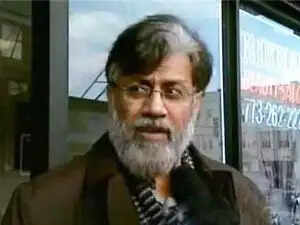US Supreme Court Paves the Way for Extradition of 26/11 Terror Accused Tahawwur Rana to India
Supreme Court Decision on Extradition

In a significant ruling, the US Supreme Court has dismissed the appeal of Tahawwur Rana, who is implicated in the 2008 Mumbai terror attacks, thereby facilitating his extradition to India. This decision brings Rana, a 64-year-old Canadian national of Pakistani descent, closer to facing legal proceedings in India.
Currently, Rana is being held at a detention facility in Los Angeles. He is notably linked to David Coleman Headley, a key figure in orchestrating the Mumbai attacks, who conducted reconnaissance in the city under the guise of working for Rana's immigration consultancy.
On February 27, 2025, Rana filed an 'Emergency Application For Stay Pending Litigation of Petition For Writ of Habeas Corpus' with Associate Justice Elena Kagan. However, Kagan rejected this application last month.
Following this, Rana renewed his request, directing it to Chief Justice John Roberts. The Supreme Court's website indicated that this renewed application was reviewed on April 4 and subsequently referred to the Court.
A recent notice confirmed that the Court has denied Rana's application.
Rana was previously convicted in the US for conspiracy to support a terrorist plot in Denmark and for aiding the Pakistan-based terrorist group Lashkar-e-Taiba, which was responsible for the Mumbai attacks.
Indian-American attorney Ravi Batra noted that Rana's appeal aimed to halt his extradition, which was denied by Justice Kagan on March 6. The application was then presented to Roberts, who shared it with the Court for further consideration.
The Supreme Court justices involved in this case include Clarence Thomas, Samuel A. Alito, Jr., Sonia Sotomayor, Elena Kagan, Neil M. Gorsuch, Brett M. Kavanaugh, Amy Coney Barrett, and Ketanji Brown Jackson.
In his emergency application, Rana argued that extraditing him to India would breach US law and the UN Convention Against Torture, citing fears of potential torture due to his background as a Muslim of Pakistani descent linked to the Mumbai attacks.
Rana's application also highlighted his serious health issues, claiming that extradition would effectively be a 'death sentence' due to the conditions he might face in Indian detention facilities.
The Supreme Court had previously denied Rana's petition for a writ of certiorari concerning his original habeas petition on January 21. On the same day, Secretary of State Marco Rubio met with Indian External Affairs Minister S. Jaishankar.
During Prime Minister Narendra Modi's visit to Washington on February 12, a letter from the State Department indicated that Rana's extradition had been authorized under the US-India Extradition Treaty.
Rana's legal team requested the complete administrative record supporting the Secretary's decision and sought assurances regarding his treatment in India, but the government did not provide this information.
Given Rana's health conditions and the State Department's findings on prisoner treatment, his counsel expressed concerns that he may not survive long enough to stand trial in India.
In a joint press conference with Prime Minister Modi, President Donald Trump confirmed that his administration had approved the extradition of Rana, describing him as 'very evil' and emphasizing the need for him to face justice in India.
The 2008 Mumbai attacks resulted in the deaths of 166 individuals, including six Americans, as ten Pakistani terrorists executed a prolonged assault on key locations in Mumbai.
